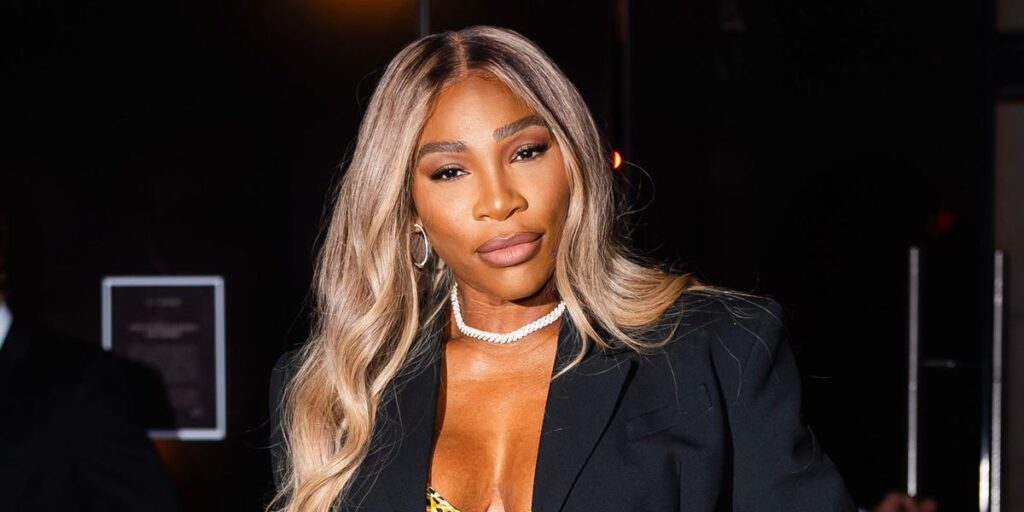Despite building a $111 million VC fund, backing 16 unicorn companies, and being married to a successful cofounder and investor, Serena Williams wishes she had more guidance when she launched her VC firm, Serena Ventures, over a decade ago.
“In hindsight, I feel like I should have had more mentors,” Williams, 44, told Business Insider.
While the tennis superstar said the mistakes she made were important for her to grow, she still asked herself: “Why learn them when you can learn them from someone else?”
It’s a good question from Williams, who, over the summer, became an “entrepreneur-in-residence” at Reckitt Catalyst.
Reckitt, a British hygiene company known for its health and cleaning products, including Lysol, has a social impact investment program aimed at delivering “health and hygiene solutions to 5 million people worldwide by 2030,” according to the company’s press release.
Catalyst recently expanded to the US, with Williams now mentoring US-based founders, including Erik Cárdenas, a founding member of Amazon Care (previously ranked on Business Insider’s 30-under-40 list in 2020), who started Zócalo Health to help Medicaid families in underserved communities.
“I feel like you learn something new every single day,” Williams said of joining the initiative. “I loved school, and I feel like I’m in school all day.”
Putting Williams in the professor role, Business Insider asked Williams to share the advice she learned from her investing experience, from refining an idea to dealing with setbacks.
Find the story, not the ‘white space’
Like most investors, when deciding whether to invest in a company, Williams first asks herself if there’s a true marketplace for the idea. “The founder can be amazing and smart and super likable, but if it’s not needed in the market, then it doesn’t fit,” she said.
If there is a market for the product or idea, she looks for the story the founder is telling. She cited some Catalyst-supported companies, such as the Tayaba Organisation and Nazava, both of which are led by female founders and address issues like water scarcity and water purification.
“These women, they’re literally saving the lives of women and children, which truly will give you chills to hear some of these stories,” Williams said.
The key, Williams said, is for entrepreneurs to be passionate about their products, rather than just looking to fill a gap. “If they have a true connection to it, the businesses tend to do better,” she added, “as opposed to ‘Oh, there’s a white space, so we’re going to do it.'”
Prioritize relationships as much as the idea
If there’s one lesson Williams learned over the years, it’s that so much depends on the face of the company.
“You’re only as good as your founder,” she said. “If someone is not a salesperson, they can have a great product, but they can’t sell it.”
Founders should be able to meaningfully connect with potential investors, Williams advised, rather than just relying on the idea being strong enough on its own.
“Access is key in VC,” she said. “When you’re doing business as an entrepreneur, it’s basically relationships.”
She said connections you’ve met forever ago might be a perfect fit as investors or collaborators later on. Even a boring event to some can be very interesting to entrepreneurs who are truly open to meeting new people.
“When I think about what mentorship means and what I’ve learned, it’s really just about connections and unlocking how to get people to know about your product,” she said.
Build up your resilience
Drawing from her successful tennis career, where she won 23 Grand Slam titles and is widely considered the best female tennis player of all time, Williams said resilience is crucial — especially in early-stage VC, when many companies don’t work out in the long run.
“Sport really provides you with this mental fortitude that makes you understand that nothing happens overnight,” she said, whether you’re an athlete or a CEO.
It’s a great cheat code to understand when you’re launching businesses like Williams. In addition to Serena Ventures, which has backed brands like Esusu and Calico, she’s also launched Wyn Beauty, the topical pain-relief brand Will Perform, her clothing line S by Serena, Serena Williams Jewelry, and her production company Nine Two Six.
Sometimes, resilience looks like finding the opportunity in obstacles.
Over half of the founders backed by Williams’ firm are women, historically a vastly underrepresented group in the VC world. According to data from the Founders Forum Group, in 2024, only 2.3% of venture capital funding globally went to all-female leadership teams, while mixed-gender teams accounted for 14.1% of spending.
“As a woman, when you start a business, you have to succeed because you have to work so much harder,” she said. In her experience of being a founder herself and working with female founders, “when we get an opportunity, we go out — we don’t know when our next opportunity to be.”
Often, she said, that drive helps the company succeed in the long run. “Whenever we are able to get a check, it tends to do well,” she said.
Read the full article here


